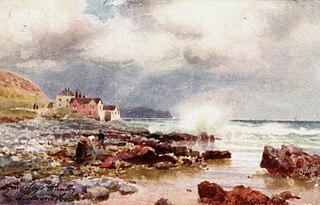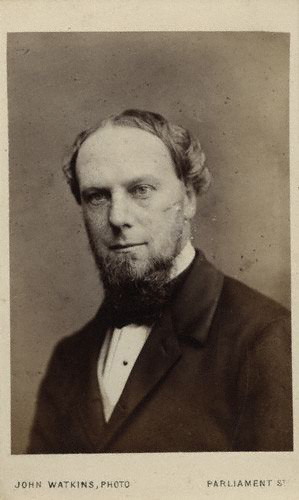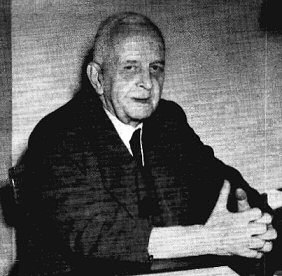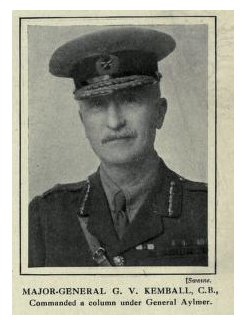
The United Services College was an English boys' public school for the sons of military officers and civil servants, located from 1874 at Westward Ho! near Bideford in North Devon, from 1904 at Harpenden, Hertfordshire, and finally at Windsor, Berkshire. Almost all boys were boarders. The school was founded to prepare pupils for a career as officers in the armed services, many of them going on to the Royal Military College, Sandhurst, or the Royal Naval College, Dartmouth.

John Wodehouse, 1st Earl of Kimberley, known as the Lord Wodehouse from 1846 to 1866, was a British Liberal politician. He held office in every Liberal administration from 1852 to 1895, notably as Secretary of State for the Colonies and as Foreign Secretary.

The Gilgit Agency was an agency within the British Indian Empire. It encompassed the subsidiary states of the princely state of Jammu and Kashmir situated along the northern border. The primary objective of establishing the Gilgit Agency was to bolster and fortify these regions, particularly in the context of concerns about Russian encroachment in the area. The subsidiary states encompassed Hunza, Nagar and other states in the present day districts of Gupis-Yasin, Ghizer, Darel, Tangir and Diamer. The agency headquarters was based in the town of Gilgit, within the Gilgit tehsil of Jammu and Kashmir.

Brigadier-General Francis Aylmer Maxwell, was a British Army officer in the Second Boer War and First World War. He was also a recipient of the Victoria Cross (VC), the highest award for gallantry in the face of the enemy that can be awarded to British and Commonwealth forces.
Bertrand Leslie Hallward was a British educationalist who served as Headmaster of Clifton College and Vice-Chancellor of the University of Nottingham.

Chitral is a city situated on the Chitral River in northern area of Khyber Pakhtunkhwa. It serves as the capital of the Lower Chitral District, and was previously the capital of Chitral District, and before that the capital of Chitral princely state. The region was encompassed into West Pakistan between the years 1969 and 1972. It has a population of 49,780 per the 2017 census.

Brigadier William Harry Evans was a lepidopterist and British Army officer who served in India. He documented the butterfly fauna of India, Burma and Ceylon in a series of articles in the Journal of the Bombay Natural History Society. Brigadier Evans was especially interested in the taxonomy and systematics of the butterfly families Lycaenidae and Hesperiidae an example being his A revision of the Arhopala group of Oriental Lycaenidae Bull. British Mus. , Ent., vol. 5: pp. 85–141 (1957).

Sir George Scott Robertson, was a British soldier, author, and administrator who was best known for his arduous journey to the remote and rugged region of Kafiristan in what is now northeastern Afghanistan and for his overall command of British Empire forces during the Siege of Chitral. He chronicled his Kafiristan experience in the book The Kafirs of the Hindu Kush. Some have suggested that Robertson's year-long expedition and subsequent book provided background and inspiration for Rudyard Kipling's short story "The Man Who Would Be King". However, Kipling's work was originally published in 1888, predating Robertson's travels to the region.

Major-General Sir George Vere Kemball, KCMG, CB, DSO, R.A. (1859–1941) was a British Army officer of the 19th and early 20th century. He was a career officer in the British Army spending most of his career in India and Nigeria.
Lieutenant-Colonel Ralph Patteson Cobbold, later Ralph Patteson Sawle, was a British soldier and writer, who served in the 60th Rifles in India.

The Chitral Expedition was a military expedition in 1895 sent by the British authorities to relieve the fort at Chitral, which was under siege after a local coup following the death of the old ruler. An intervening British force of about 400 men was besieged in the fort until it was relieved by two expeditions, a small one from Gilgit and a larger one from Peshawar.
The Chitral Scouts (CS), also known as Chitral Levies, originally raised in 1903 as the militia of the princely state of Chitral, is now part of the Frontier Corps Khyber Pakhtunkhwa (North) of Pakistan. They are recruited mostly from the Chitral and Kalash Valleys areas along the western borders and are led by officers from the Pakistan Army. The Frontier Corps of Khyber Pakhtunkhwa (North) falls under the control of the Ministry of the Interior. Its headquarters is at Chitral town, and it is commanded by a Colonel of the Pakistan Army.

John Travers Mends Gibson was an English schoolmaster, scholar, academic and a distinguished British Himalayan mountaineer.

Sir Shuja ul-Mulk KCIE was the Ruler of the State of Chitral, and reigned it for 41 years until his death in 1936. He belonged to the royal Katur dynasty, which ruled the state from 1571 to 1969, until the Princely State of Chitral was merged to form the Chitral District of the Provincially Administered Tribal Areas, Malakand Division, North West Frontier Province, Pakistan.
The Queen's Birthday Honours 1900 were announced on 23 May 1900 in celebration of the birthday of Queen Victoria. The list included appointments to various orders and honours of the United Kingdom and British India.

Aman ul-Mulk was the Mehtar of Chitral, Ghizer, Yasen and Ishkoman and Suzerain of Kafiristan. He ruled the State of Chitral from 1857 to 1892. His rule saw Chitral reach its territorial peak, extending from Ishkamun in Gilgit Agency to Asmar in Afghanistan. His death led to the Siege of Chitral, an instance of high drama which goes down in the annals of British India as an epic of enormous courage and determination.
Lieutenant-Colonel Evelyn Hey Cobb, OBE was an officer in the British Indian Army and served as political administrator in various capacities in North-West India. He started the tradition of holding a polo festival at Shandur.
The Relief of Chitral is a book on the Siege of Chitral written by two brothers namely Major General Sir George John Younghusband and Lieutenant Col. Sir Francis Edward Younghusband and published by Macmillan Publishers in 1895.
Chitral; the Story of a Minor Siege is a book written by Sir George Scott Robertson on the Siege of Chitral and published by Methuen Publishing in 1898.












